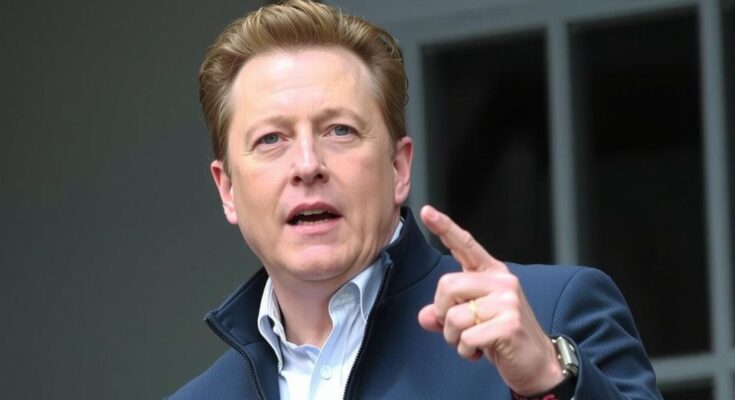The German government claims that Elon Musk is trying to influence its elections by supporting the far-right AfD party, stating that his remarks exemplify “the greatest nonsense”. This assertion showcases the government’s firm stance against outside political influence as elections approach.
The German government has accused Elon Musk of attempting to meddle in its forthcoming elections through his public endorsements of the right-wing Alternative for Germany (AfD) party. A spokesperson remarked, “Freedom of opinion also covers the greatest nonsense,” in reference to Musk’s statements, which have elicited considerable controversy. This declaration has spurred discussions about the impact of social media figures on political landscapes.
The situation arises in the context of heightened political sensitivities in Germany as the nation approaches its elections. The Alternative for Germany party has been polarizing in its right-wing stance, and its association with prominent figures like Elon Musk serves to amplify both its visibility and the various reactions from the public and government entities. Musk’s influence in media and technology adds a layer of complexity to the potential ramifications of his statements on electoral processes worldwide.
In summary, the German government has taken a firm stance against Elon Musk’s perceived interference in its electoral process, highlighting concerns over external influence in domestic politics. The government’s response emphasizes the absurdity of Musk’s comments while underscoring the broader implications of social media engagement by influential figures in shaping political narratives. As this story develops, the intersection of social media and political discourse will continue to be scrutinized.
Original Source: www.newsweek.com




